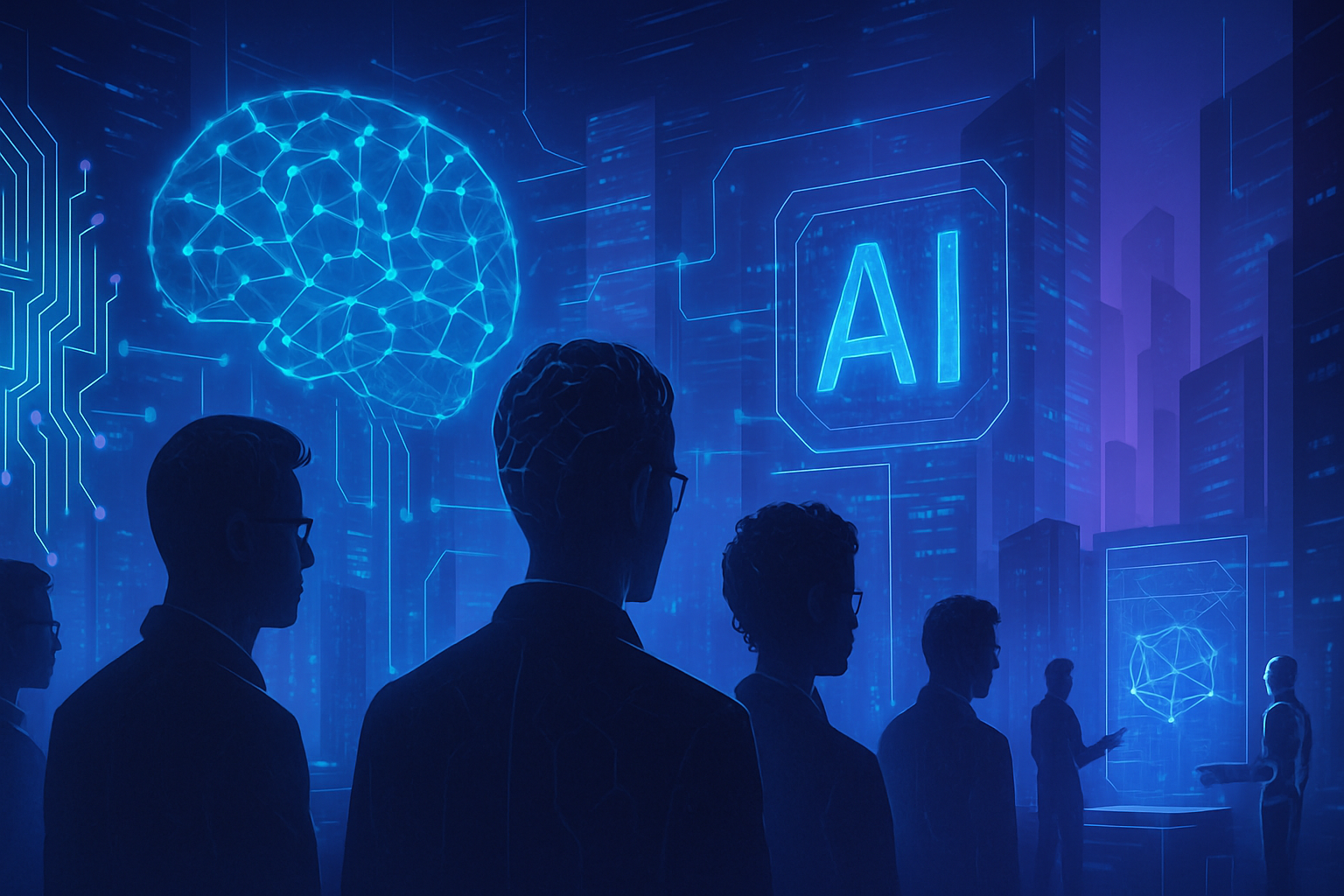Anthropic’s artificial intelligence proves to be a strategic vector for American intelligence services. *Technological innovation impacts national security*, shaping new methods of data analysis. *This partnership with the U.S. Army redefines* the boundaries of modern intelligence, generating unparalleled decision-making capabilities. The Claude 3 and 3.5 models, designed to handle complex data, provide undeniable advantages in the face of the growing geopolitical threat. The alliance between Anthropic and Palantir initiates an era where AI becomes essential in defense operations.
Artificial intelligence in the service of defense
The rise of artificial intelligence is prominent in various sectors, particularly in defense and intelligence. Anthropic, a renowned start-up, has recently solidified its strategic positioning by partnering with several divisions of the U.S. Army. This collaboration demonstrates Anthropic’s commitment to transforming intelligence operations through advanced technologies.
A partnership with Palantir
Anthropic has announced a coalition with Palantir, a formidable player in big data analytics. This strategic alliance aims to provide AI solutions tailored to the specific needs of the classified environments of the U.S. government. The sales director at Anthropic emphasizes the company’s pride in enhancing the analytical capabilities and operational efficiency of defense agencies.
Optimization of analytical capabilities
The AI models developed by Anthropic, namely Claude 3 and Claude 3.5, will be integrated into the Palantir platform, hosted on the Amazon Web Services (AWS) infrastructure. This synergy allows for harnessing the power of Claude to process and analyze vast volumes of complex data, an essential response to the critical needs of the government. By facilitating access to powerful tools, this technology bestows a significant advantage in strategic missions.
Terms of use: ambiguity and vagueness
The precise terms of use for Anthropic’s technologies in a military context remain vague. Unlike Meta, which imposes clear restrictions regarding military applications, Anthropic does not have such explicit limitations. Although some requirements related to risks were mentioned, military applications are not clearly delineated by these provisions. This silence raises ethical and regulatory questions regarding the use of AI in sensitive contexts.
A new direction for military AI
Anthropic’s partnership with the U.S. Army fits into a growing trend where technology companies expand their innovations into military utilities. Microsoft, for example, has secured accreditations for its Azure OpenAI service, optimized for the defense sector. The increasing adoption of generative AI seems to become inseparable from the decision-making and operational processes of defense agencies.
Competitive practices and ethical issues
OpenAI, another start-up attracted by this path, has modified its usage policies. References that explicitly prohibited its use for military purposes have vanished, which opens the door to new collaborations. This evolution prompts a deep reflection on the role of AI within the American military-industrial complex. The current context sparks debates around the regulation of AI applied to the military.
The transformation of intelligence operations
Anthropic is committed to providing American intelligence services with effective analytical tools, paving the way for legal analyses of foreign intelligence, for example. These analyses target issues such as human trafficking or covert operations. This capability allows for anticipating detected threats, offering a strategic dimension to diplomacy and national security.
An international ambition
The initiatives taken by Anthropic align with a global movement where technology and defense converge. As artificial intelligence continues to carve its way through various fields, its military applications are multiplying and diversifying. The intersection between technological innovation and national security is becoming a crucial issue for the United States, enabling them to maintain a competitive edge on the world stage.
Frequently asked questions about Anthropic’s artificial intelligence
What is the goal of the partnership between Anthropic and the U.S. Army?
The partnership aims to integrate sophisticated artificial intelligence solutions, such as the Claude 3 and Claude 3.5 models, into the defense and intelligence operations of the United States, thereby improving the operational efficiency and analytical capabilities of the relevant agencies.
How does Anthropic ensure the security of sensitive data in this partnership?
Anthropic collaborates with Palantir and uses the Amazon Web Services (AWS) infrastructure to ensure that processed data remains secure, while adhering to the necessary security standards for the U.S. government’s classified environments.
What are the main features of the Claude 3 and Claude 3.5 models?
The Claude models are designed to process and analyze large volumes of complex data rapidly, offering advanced analytical capabilities that are essential for intelligence missions, especially in areas like combating human trafficking and detecting potential military activities.
What are the usage restrictions of Anthropic’s technologies for military applications?
Anthropic does not impose explicit limitations on the use of its technologies for military purposes, unlike other companies. Although there are requirements for high-risk use cases, military uses are not clearly mentioned as prohibited.
How does Anthropic plan to address ethical concerns related to the use of AI by intelligence services?
While Anthropic promotes ethical practices in AI development, it has also stated in its communications that it continuously tests and adjusts its usage policy to ensure beneficial implications for selected government agencies, including intelligence analysis scenarios.
What benefits can intelligence agencies expect from this alliance?
Intelligence agencies will benefit from artificial intelligence tools capable of providing analyses in significant timeframes, enhancing their ability to anticipate and respond to threats or criminal activities, thus optimizing resources and decision-making processes.
How does Anthropic’s AI compare to that of other companies like OpenAI or Microsoft?
Anthropic, with its Claude models, positions itself with recognized performance in generative AI. In comparison, OpenAI and Microsoft have also established partnerships with military entities, indicating a broad trend of integrating AI into the defense sector.
What strategic implications for the future of American defense does this collaboration hold?
This collaboration could strengthen the technological position of the United States in managing national security, using AI to enhance the accuracy of intelligence and the speed of mission execution, thereby influencing the dynamics of military power globally.






